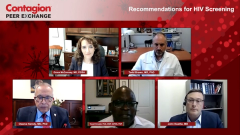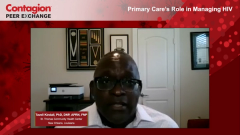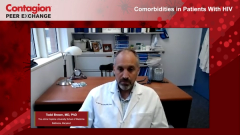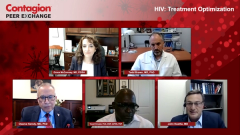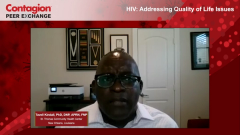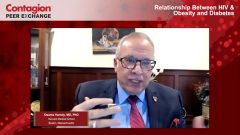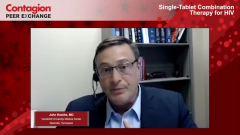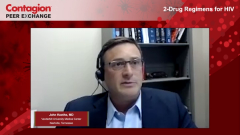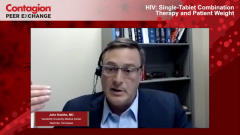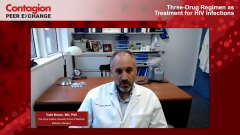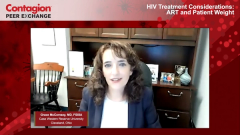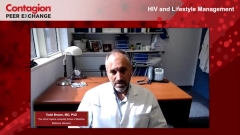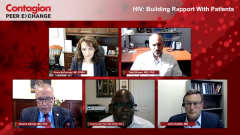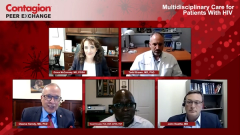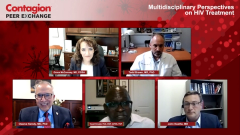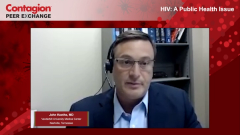
HIV: Addressing Quality of Life Issues
Strategies to help counsel and support newly diagnosed patients with HIV.
Episodes in this series

Grace McComsey, MD, FIDSA: Tavell, I want to pivot a bit. We talked about quality of life; it’s very important. It’s not a successful treatment if a patient is miserable, they have a lot of complications but have undetectable viral load. That’s not really what we would like for our patients. How much do you discuss in the clinic quality of life issues and how do you address them? Already HIV [human immunodeficiency virus] care is complicated. How much time do you put for that?
Tavell Kindall, PhD, DNP, APRN, FNP: That’s a great question. In the realm of antiretroviral therapy, quality of life looks like, is the medicine going to make me sick? Am I going to take it? What’s interesting is that a lot of individuals are returning to care. For whatever reason they’ve been out of care for however long. In my experience, here in New Orleans, there have been some individuals who have been out of care because they felt as though they weren’t treated well. And when they came to see me, they now have an opportunity to be on the newer medications that weren’t available to them at the time when they were diagnosed. And it’s amazing because they say things like, “Oh my God, I can’t believe [it]. If they would’ve had this 10, 15 years ago, I would’ve never fallen out of care, because the whole thing was, I don’t want to take anything that will have me sick and making me feel bad.” The journey towards having a conversation, the quality of life conversation, can start initially when you first meet them, certainly, but you may not get it all out. You must be patient and allow the journey to have patients to share things with you, and then that way you can address different things. I can tell you that one of the things right now that I have been talking a lot about with patients is they tell you things like, “Look, I’m afraid to tell people because I don’t know how they’re going to treat me,” or, “What does this mean? Am I going to go to jail if somebody finds out that I have HIV and I didn’t share my status with them?” Certainly anxiety, depression, if it was present before the diagnosis, then it’s likely exacerbated on the other side of it, so that’s always a concern. There’s concerns about employment.
There’s concerns about education. There’s concerns about finances. I had a patient who basically told me that he went and spent all of his life savings and everything else because he thought he was going to die when he got his diagnosis. And it’s interesting that in 2021, people are still believing that they’re going to die if they have an HIV infection. I try to address it along the journey, and I share with them right up front, “This is a journey. This is a partnership that you and I have together, and we’ll be talking about a lot of things. Certainly, the reason for your visit is for us to make sure that your antiretroviral therapy is safe and effective and that you are otherwise healthy, but we also need to talk about, what issues are you having? Do you have housing? Do you have transportation? Are you gainfully employed? Can you take care of yourself? Are you struggling with internalized stigma? What’s going on and let’s talk about those things and let’s make sure that that’s a part of the plan of care, because we want you to have a very fulfilled life. You’re not going anywhere, go ahead and get that out of the way. You’re not dying." But at the same time, because of the history of HIV and how people have been treated, some of those quality of life things are challenging.
Thank you for watching this ContagionLive® Peer Exchange. If you enjoyed the content, please subscribe to the e-newsletter so you can receive upcoming Peer Exchanges and other great content. Thank you for listening.
Transcript Edited for Clarity
Newsletter
Stay ahead of emerging infectious disease threats with expert insights and breaking research. Subscribe now to get updates delivered straight to your inbox.

